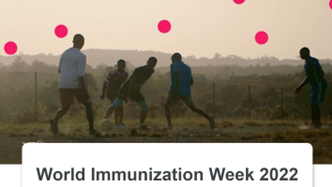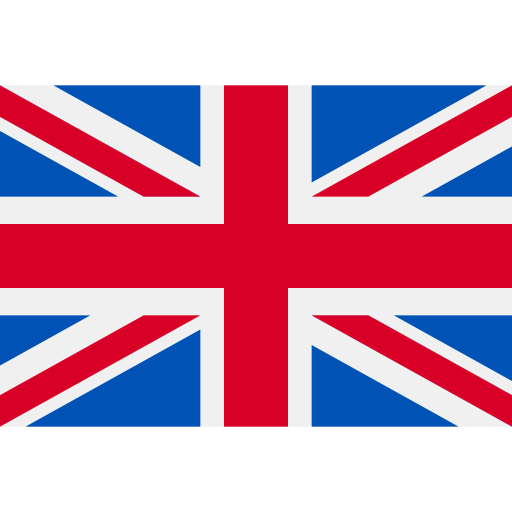World Immunization Week 2022: Long Life for All
World Immunization Week (WIW), which in Europe is called European Immunization Week (EIW) is promoted by the World Health Organisation (WHO) to raise awareness among the public and decision-makers about the importance of vaccines at all stages in life. It has been celebrated every year for more than three decades with the aim of increasing vaccination coverage by spreading awareness of the value of immunisation among parents, health workers, policy-makers and the media. In order to help sustain public demand by providing political and social support for vaccination through advocacy, health education, targeted communication and counselling, WIW and EIW are supported by WHO's national and international partners, including the United Nations Children's Fund (UNICEF) and the European Centre for Disease Prevention and Control (ECDC). “Long life for All” is the slogan chosen for 2022, which, as WHO states, "wants to unify people around the idea that vaccines enable us to follow our dreams, protect our loved ones and live long and healthy lives".

The history of vaccines is perhaps one of the richest and most compelling chapters in medical history; from Edward Jenner's implementation of the first smallpox vaccine in 1796 to the current administration of the anti-COVID-19 vaccine, millions of lives have been saved worldwide.

The success of vaccinations has enabled the eradication of infectious diseases such as smallpox, drastically reduced the incidence of debilitating diseases such as polio and measles, and even prevented certain cancers, including liver and cervical cancer, thus contributing to a significant increase in the life expectancy of the world's population.
According to the World Health Organisation, vaccinations prevent up to 3 million deaths a year worldwide, and in the current pandemic context, in which public health is burdened not only by the major consequences of the SARS-CoV-2 infection, but also by the plausible possibility of the re-emergence of other infectious diseases that can be prevented by vaccination, it is all the more important to stress the importance of a global preventive action and to reassure the population that an active service cannot and must not be neglected.
However, although vaccination has been universally recognised as one of the best strategies to increase longevity and improve quality of life, coverage rates are often below recommended levels to reduce the spread and eliminate vaccine-preventable diseases.
In this regard, according to WHO data, registered childhood vaccination coverage worldwide has fallen from 86% in 2019 to 83% in 2020 and an estimated 23 million children under one year old have not received basic immunisations, the highest number since 2009. In addition, the number of children not fully vaccinated has increased by 3.4 million in 2020 and 1.6 million more girls were not fully protected against the human papillomavirus (HPV) compared to the previous year.
Also in Italy, the data on routine vaccination coverage for 2020 are not encouraging: the data describe a general drop in coverage for all vaccinations, with particular reference to childhood vaccinations, for which there is a decline of almost one percentage point for polio at 24 months and 1.7% for the first dose of measles vaccination. In this context, the role of public health is to pursue the commitments made to the population, both in terms of improving supply and in terms of access to services in order to ensure greater informed adherence by all citizens.

In a bid to help raise awareness among the general population about consciously choosing vaccination programmes and to actively involve health workers, policy makers and the media, WHO has been celebrating World Immunization Week over the last 7 days of each April for the past 17 years. This initiative gives new impetus to the collective action needed to promote the use of vaccines in order to protect people of all ages from vaccine-preventable infectious diseases. During these years of intense work in which Public Health worldwide has worked and continues to work with constancy and commitment to raise awareness of the importance and essentiality of vaccinations and to increase vaccination coverage, WIW has become a widely recognised event at global level, within which European Immunization Week - EIW also enjoys unquestionable resonance. EIW takes place thanks to the joint action of the Member States of the European Region, with the involvement of all WHO National Offices and partners, Ministries of Health, Professional and Parental Organisations, Local Health Authorities, Departments of Prevention and Public Health, together with all citizens. A series of activities is carried out including updating sessions, distribution of information material, press conferences and much more.
Every April, therefore, World Immunization Week brings together people from all over the world to highlight the importance of vaccines, which, more than two centuries after their discovery, still offer every individual the chance to pursue a well-lived life while maintaining good health.

This year's campaign comes at a particularly critical time, as the COVID-19 pandemic has slowed and sometimes halted essential health services, including routine immunisation, delaying the progress made for over a decade. Regrettably, millions of people who have not yet been covered by routine vaccinations in recent years continue to miss out on the life-saving benefits of vaccines, and even those population groups who have had the opportunity to vaccinate are seeing their coverage rates drop, underlining the urgency of catching up and reaching those who have been missed.
Numerous initiatives are therefore being implemented this year through information campaigns, interviews, technical meetings, debates between groups of experts, television programmes, scientific conferences and many other activities. In Italy, the Italian Society of Paediatrics (SIP), the Italian Society of Neonatology (SIN) and the Italian Society of Gynaecology and Obstetrics (SIGO) set up a telephone advice desk on 26, 27, 28 and 29 April. For one hour a day, experts answered questions from parents and those interested on the following topics: i) Vaccinations in pregnancy, ii) Vaccinations in newborns and premature babies, iii) COVID-19 vaccination, iv) Vaccinations in adolescence. In addition, the Italian Society of Paediatrics, in order to ensure the best possible health care and routine vaccinations for the many minors fleeing Ukraine who arrive in our country, has translated into Ukrainian the booklet on vaccinations in childhood, entitled "Your child... protect him/her with vaccinations! It's never too soon', produced in conjunction with the Italian Society of Neonatology and aimed at all parents. Already available in Italian, Arabic, Chinese, Filipino, Russian, English and Spanish, and sponsored by the Ministry of Health, the booklet is now also available in Ukrainian and can be downloaded free of charge at https://bit.ly/3DmyCol.
On 28 April, the Ministry of Health hosted an important initiative that involved Simit - the Italian Society of Infectious and Tropical Diseases, SItI - the Italian Society of Hygiene Preventive Medicine and Public Health, Aiom - the Italian Association of Medical Oncology, with the participation of Favo - the Federation of Voluntary Associations in oncology. Drawing on the great success of the COVID-19 vaccination campaign in fragile individuals in general, and in those diagnosed with cancer in particular, starting with the fourth dose against Sars-CoV-2, propose to keep the hospital HUBs active, offering not only COVID-19 vaccinations, but also all those recommended for hospital patients with specific illnesses. This initiative draws attention to the importance of the Hospital that vaccinates as an appropriate opportunity to reach those most fragile.
In this context, Vaccinarsinsardegna. org, embodying the principles on which all health promotion initiatives are based and fitting in fully with the topics discussed during this important week dedicated to vaccine prophylaxis, today underlines even more firmly the importance of global action to raise awareness and promote vaccination prophylaxis and, on the occasion of WIW 2022, gives voice to the Immunization Agenda 2030 (ATTACHMENT 1), a new, ambitious global strategy proposed by WHO with a common goal: a world in which everyone, everywhere and at every age, benefits fully from preventive vaccination. The Immunization Agenda 2030 will help maintain hard-won immunisation successes, recover from the disruptions caused by COVID-19 and increase equitable access to vaccines for all.
For more information visit https://www.who.int/teams/immunization-vaccines-and-biologicals/strategies/ia2030/explaining-the-immunization-agenda-2030



